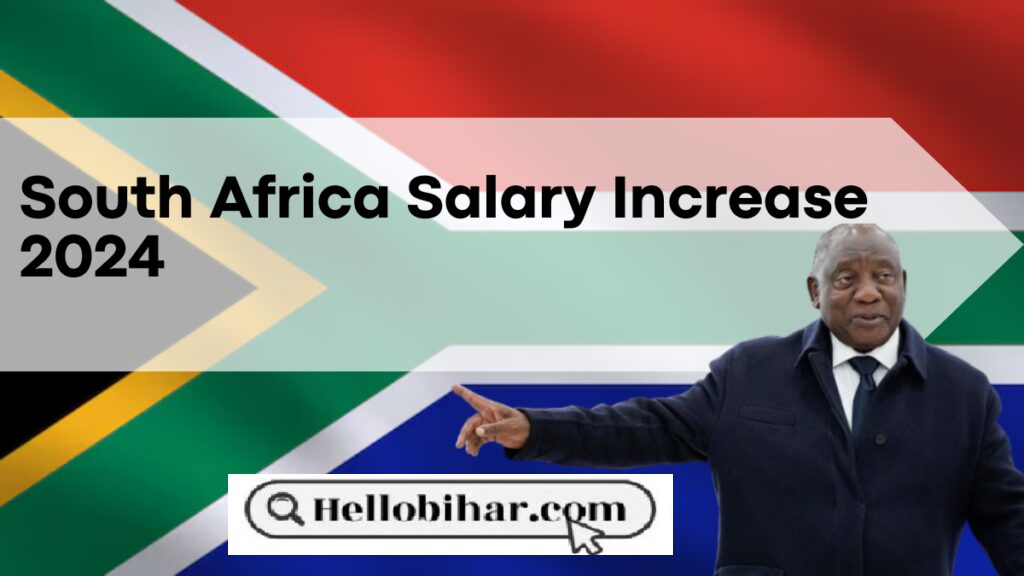South Africa Salary Increase 2025: Will There Be Another Boost?
South Africa Salary Increase 2025:- The South African government has announced a 4.7% salary increase for public servants, effective December 2025.
This decision, spearheaded by the Minister for Public Service and Administration, Ms. Noxolo Kiviet, affects employees in national and provincial departments on salary levels 1 to 12.
While the adjustment aims to recognize the contributions of public servants and maintain fiscal responsibility, it has sparked mixed reactions among stakeholders.
In this article, we delve into the details of the salary increase, explore its financial implications, and examine the responses from trade unions and public servants.
Key Details of the South Africa Salary Increase 2025
The announced salary hike is part of the government’s strategy to balance fair compensation with fiscal prudence. Here are the essential details:
- Effective Date: December 2024
- Target Group: Public servants on salary levels 1 to 12 in national and provincial departments
- Increase Rate: 4.7%
- Additional Benefits:
- Pay Progression: An extra 1.5% for eligible employees based on years of service and performance reviews
- Housing Allowances and Medical Benefits: Subject to ongoing negotiations to align with inflation
This increase is a step towards improving service delivery, retaining talent, and strengthening the public service sector.
South Africa Salary Increase 2025 Broader Context of the Decision
The salary adjustment reflects the government’s commitment to supporting public servants despite South Africa’s ongoing economic challenges. The following factors influenced the decision:
- Economic Constraints:
With South Africa’s limited fiscal capacity, the government seeks to balance wage increases with sustainable spending. - Retention of Talent:
Public service should remain an attractive career path, offering competitive salaries and growth opportunities. - Acknowledgment of Contributions:
The government recognizes the critical role public servants play in nation-building and service delivery.
Minister Kiviet underscored this commitment, stating:
“The government had to counterbalance these with the need to prioritize fair and competitive compensation for public servants to attract and retain talented individuals dedicated to serving the nation.”
South Africa Salary Increase 2025 Trade Union Reactions
The salary increase has received mixed responses from trade unions, with some accepting the decision while others expressed dissatisfaction.
Criticism from Key Unions
Several unions, including Popcru, Sapu, and Nehawu, have criticized the 4.7% increase, citing that it falls below the current consumer inflation rate. These unions, representing approximately 300,000 state workers, have threatened strikes if their demands for higher increases are not met.
PSA’s Balanced Approach
The Public Servants Association (PSA), representing over 245,000 state workers, has adopted a cautious approach. PSA General Manager Reuben Maleka stated:
“Should the CPI [consumer price index] rise above the projected CPI, the PSA will insist that the difference be augmented.”
The PSA is closely monitoring inflation trends to ensure that public servants are fairly compensated.
South Africa Salary Increase 2025 Financial Implications for the Government
The salary increase significantly impacts government expenditure, particularly amid South Africa’s fiscal challenges.
Rising Wage Costs
The National Treasury has allocated R754.2 billion for public servant salaries for the 2025/25 fiscal year, reflecting a R33.1 billion increase from the previous year. Projections for subsequent years indicate further rises:
- 2025: R788.6 billion
- 2026: R822.5 billion
These expenditures represent nearly 30% of the national budget, highlighting the financial weight of public sector salaries.
South Africa Salary Increase 2025 Balancing Fiscal Responsibility and Fair Wages
The government faces a delicate balancing act, needing to maintain fiscal sustainability while ensuring fair wages for public servants.
South Africa Salary Increase 2025 Challenges and Potential Strikes
Union Concerns
Trade unions have voiced two primary concerns regarding the increase:
- Below-Inflation Adjustment:
With the 4.7% increase failing to match the inflation rate, public servants face reduced purchasing power. - Industrial Action:
Unions such as Nehawu and Popcru have indicated plans for strikes if their demands are not met, potentially disrupting essential services.
Implications of Strikes
Strikes could lead to:
- Service disruptions in healthcare, education, and policing
- Increased pressure on the government to revise the wage offer
Government’s Broader Strategy
Apart from the salary hike, the government is exploring additional measures to support public servants:
- Performance-Based Pay Progression:
Eligible employees can receive an extra 1.5% based on service duration and performance evaluations. - Inflation-Aligned Adjustments:
Housing allowances and medical benefits are under review to ensure they remain relevant to employees’ needs.
These measures aim to provide holistic support and enhance the overall well-being of public employees.
Frequently Asked Questions (FAQs)
1. Who benefits from the 4.7% salary increase?
The increase applies to public servants on salary levels 1 to 12 in national and provincial departments.
2. Why is the increase limited to 4.7%?
The increase reflects fiscal limitations and aims to balance fair compensation with sustainable government spending.
3. Will housing and medical benefits also increase?
Negotiations are ongoing to align these benefits with inflation.
4. How does the pay progression system work?
Employees meeting performance and service criteria may receive an additional 1.5% increase.
5. What are the implications of strikes by unions?
Strikes could disrupt public services, potentially prompting further negotiations between unions and the government.

